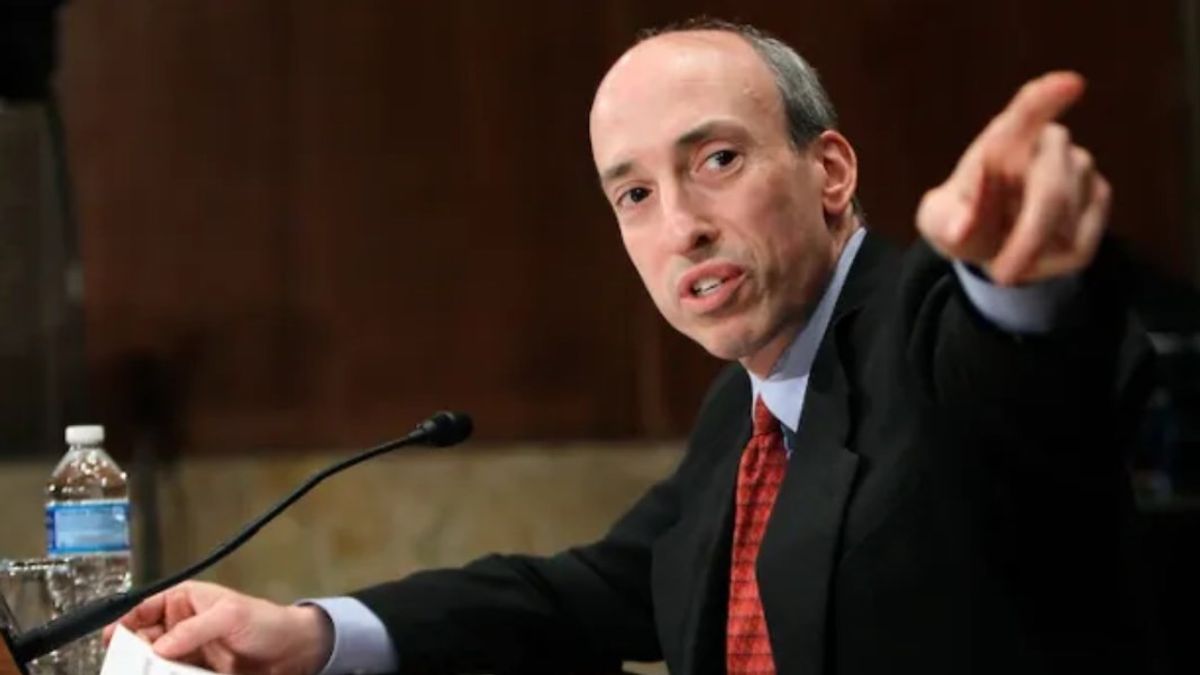JAKARTA – The chairman of the US Securities and Exchange Commission (SEC) Gary Gensler has been in the media spotlight for not answering the question of whether Ethereum is a security or not. Because it has been a year since the SEC has sued Ripple (XRP) alleging that XRP is unregistered security.
Apart from the SEC and Ripple feud, there have been a number of rumors stating that the lawsuit against Ripple cannot be separated from the role of Ethereum-affiliated companies as the number two largest cryptocurrency in the world. However, Gensler did not answer directly to questions highlighting the status of Ethereum.
Launching Cryptopotato, Gensler who did not answer questions about Ethereum's regulatory status highlighted the importance of this issue. As an MIT professor in 2018, he has noted that Ether should be considered a security because it sells through an ICO (Initial Coin Offering).
“I think when the [ICO] is done in 2014, it will pass this [Howey] test. When I say 'pass', it means it is a security,” Gensler said at the time.
Failing to confirm previous stances against the world's second-largest digital currency is not the only thing wrong in this situation. Gensler's reply could bring substantial clarity about whether he has the same view of crypto assets.
Analysts believe Gensler avoided repeating his earlier stance on Ethereum due to the ongoing SEC-Ripple legal dispute in which the Commission charged payment processors with selling unregistered XRP securities.
SEE ALSO:
In a legal battle that has engulfed the media, Ripple stated that its tokens are not securities. Unlike the Ethereum ICO, Ripple was launched with funding from Venture Capitalists. It should be noted that Gensler's predecessor, Jay Clayton, during his tenure maintained that Ethereum is not a security.
When asked by Andrew Sorkin if he thinks Ethereum should be considered a security, Gensler said, “I'm not going to talk about a single issue.” He added that the SEC would not "engage in a public forum discussing any project."
Currently, most crypto assets are regulated by the Commodity Futures Trading Commission (CFTC), where regulations are relatively loose. But as the market size has grown significantly in terms of both value and customer base in recent years, US regulators have pushed for greater regulation.
The classification of digital assets would place them under the purview of the SEC, which has a more stringent regulatory framework.
Since Gary Gensler was appointed chairman of the SEC, he has explained on several occasions that there is a need for greater crypto regulation to protect investors.
He argues that trading platforms can benefit from increased credibility by complying with regulations, particularly taxes, insider trading, and anti-money laundering laws.
If a crypto trading platform collects money from the public and if the public invests in anticipation of profits based on their promises, the issue falls within the securities laws, Gensler said during an interview on Monday, Jan. 10 yesterday.
The English, Chinese, Japanese, Arabic, and French versions are automatically generated by the AI. So there may still be inaccuracies in translating, please always see Indonesian as our main language. (system supported by DigitalSiber.id)
















